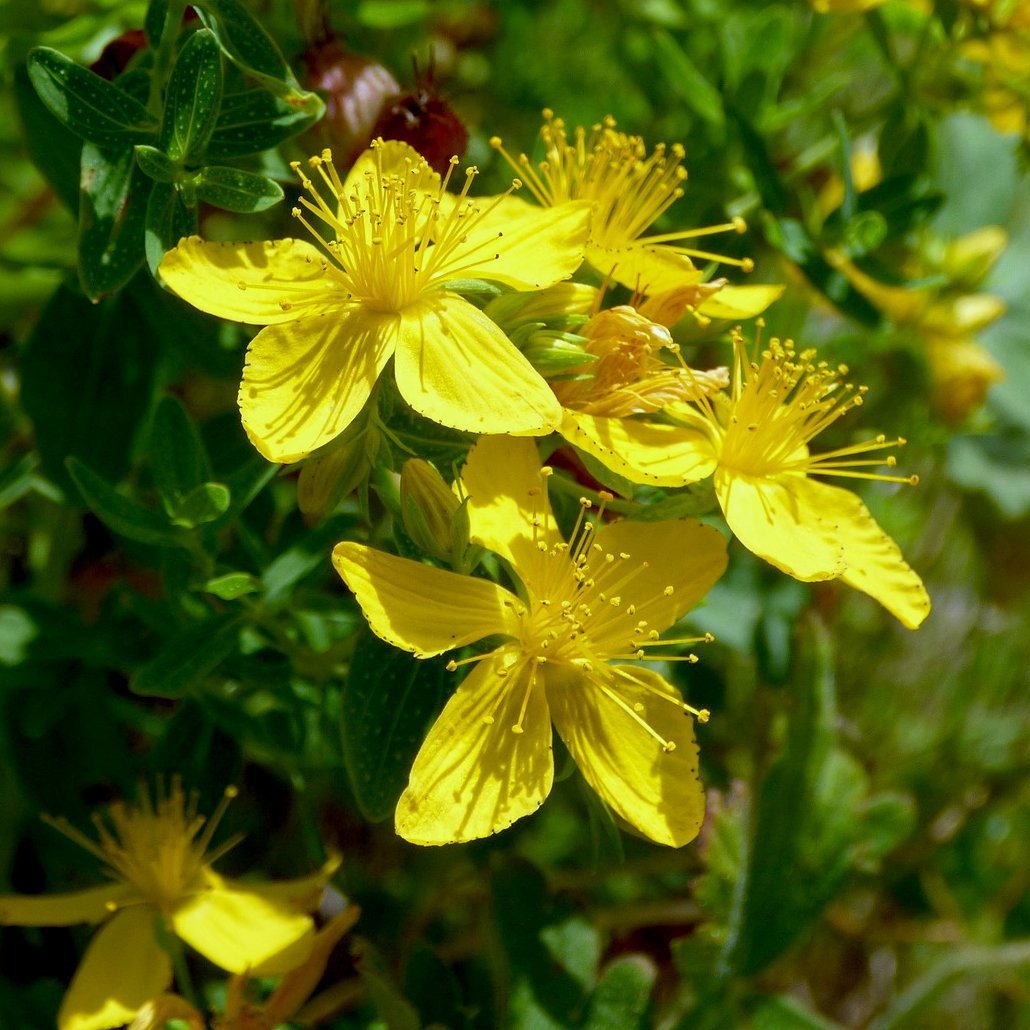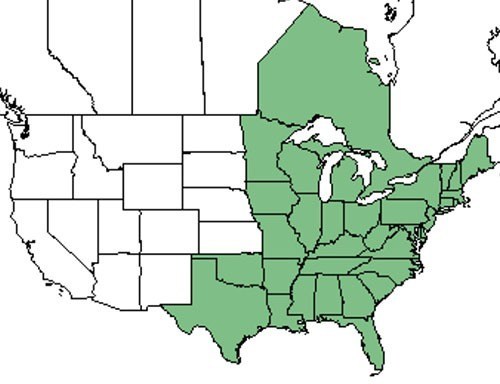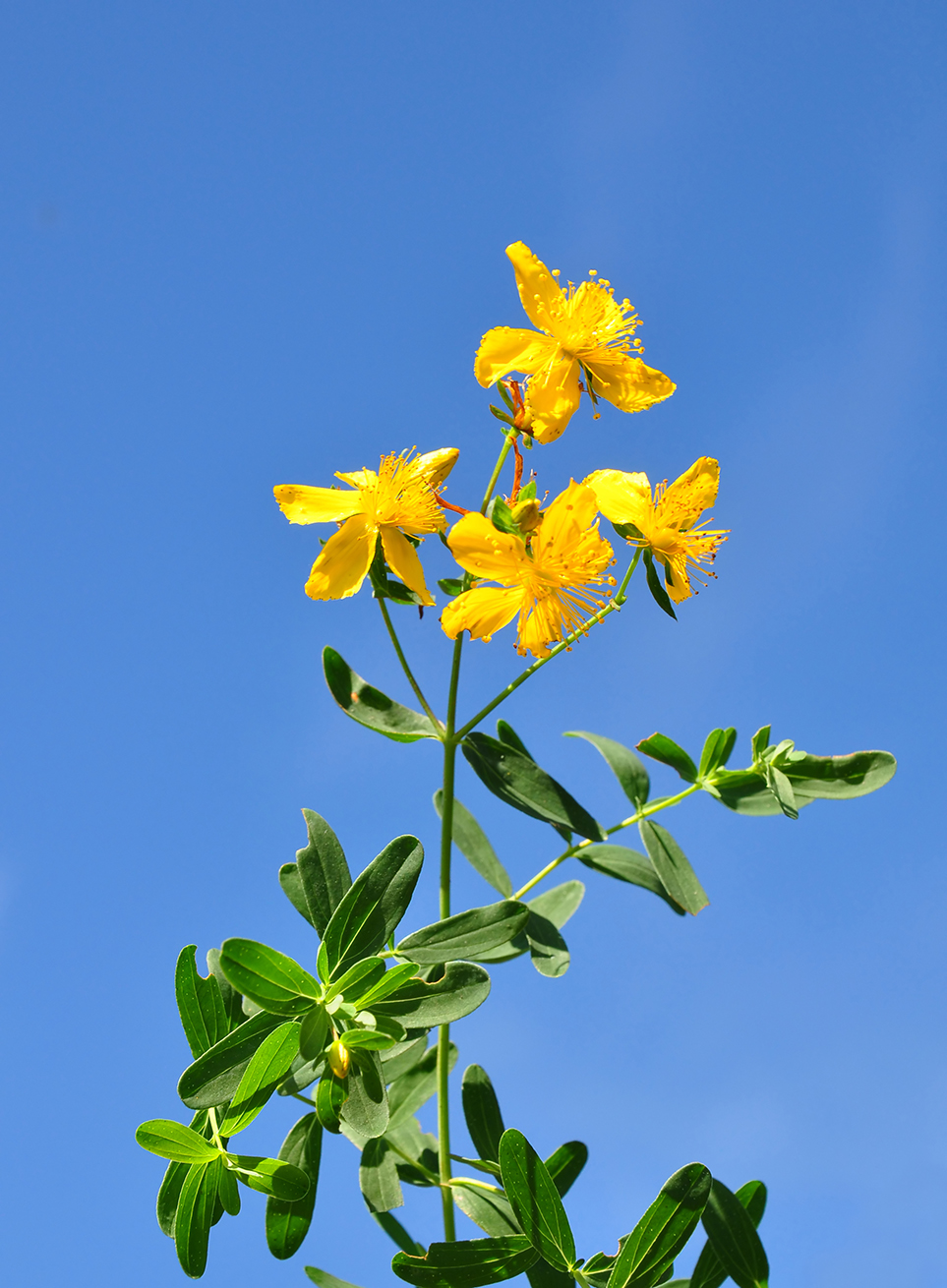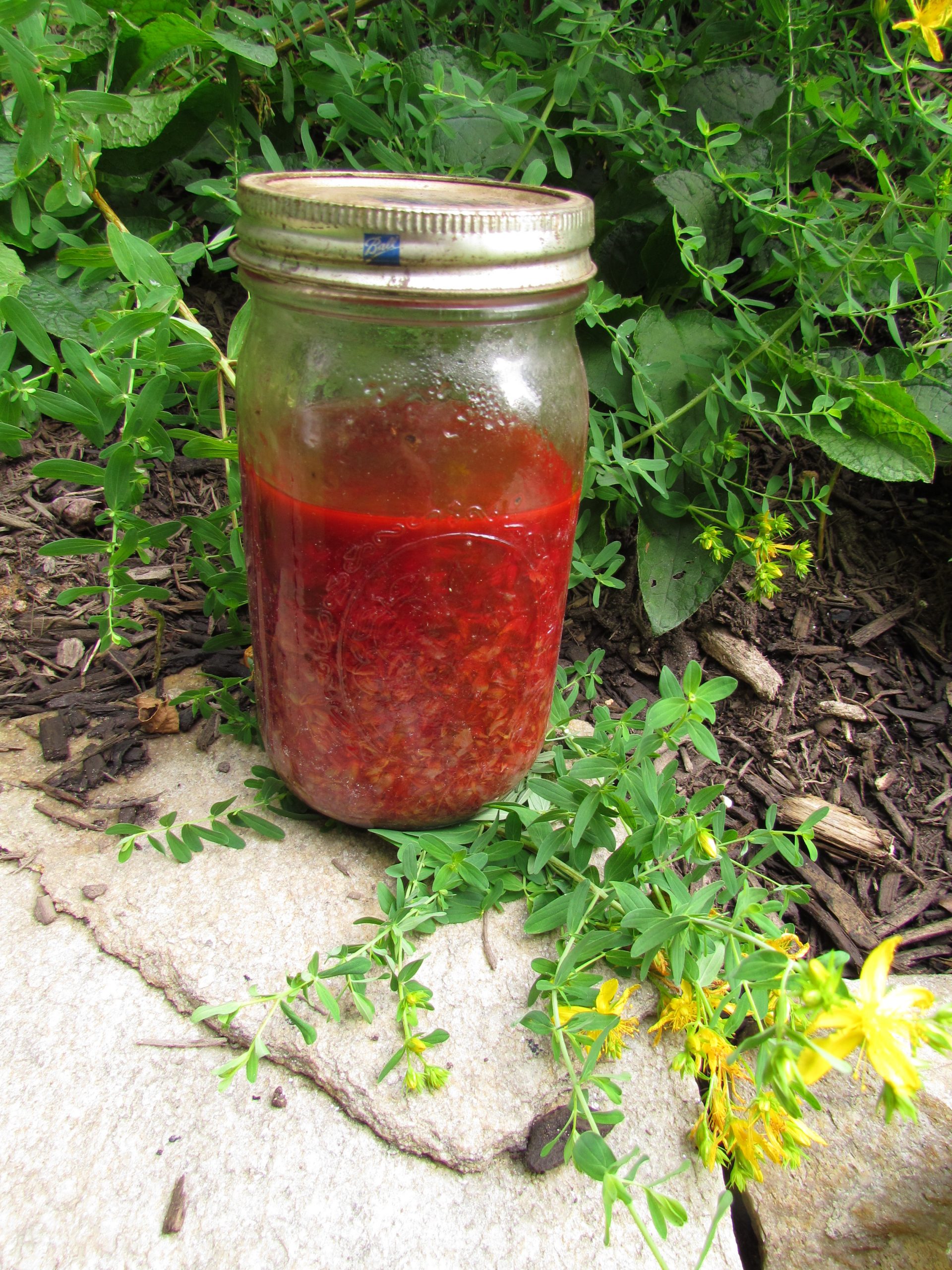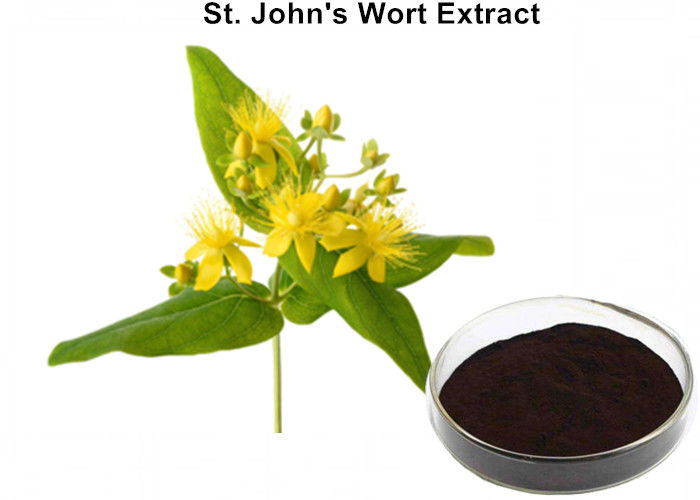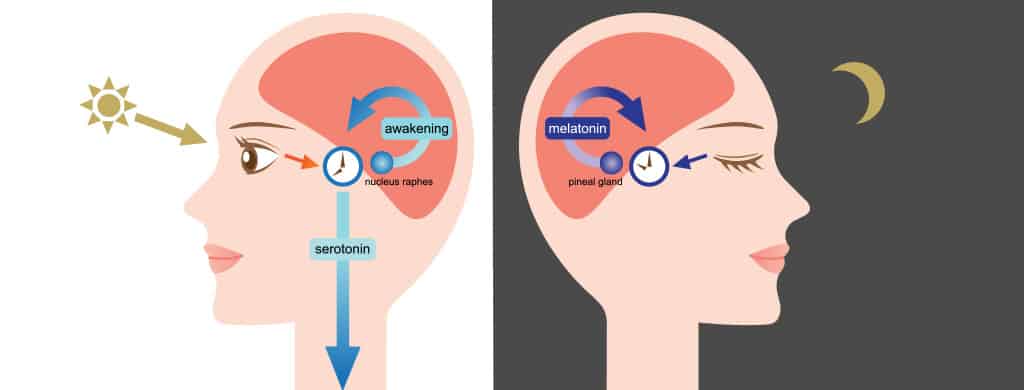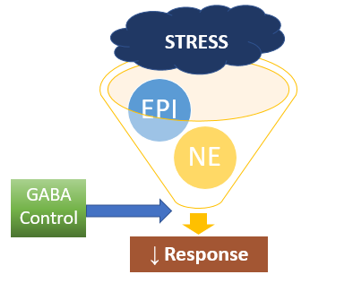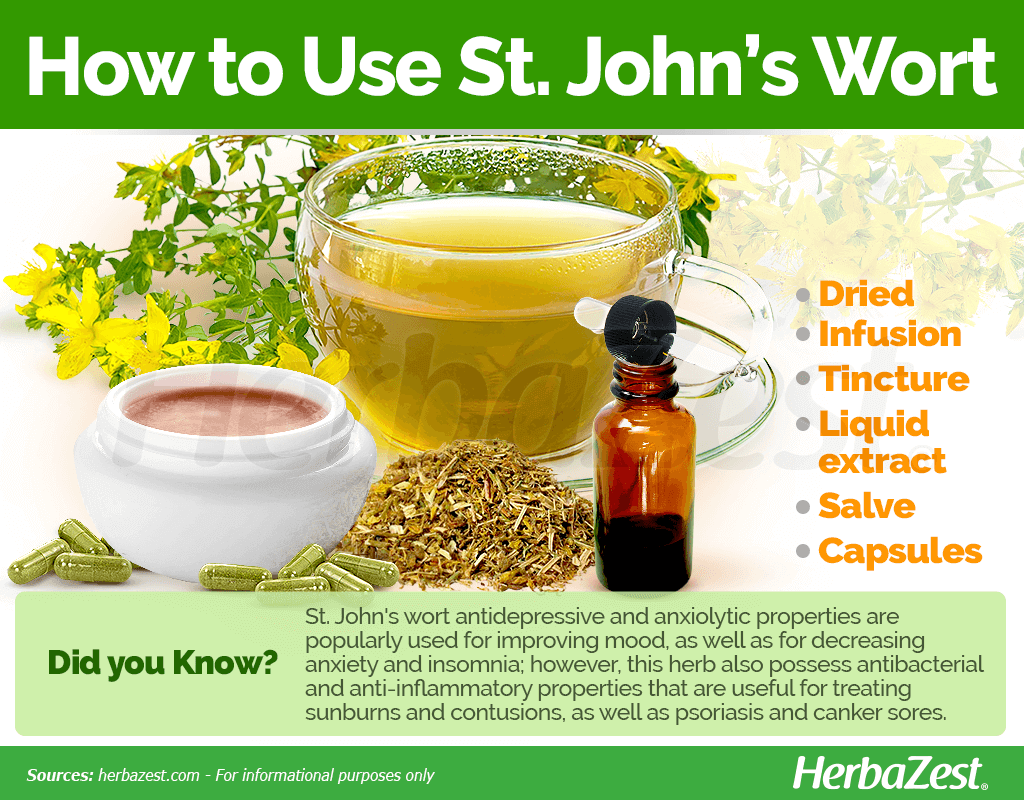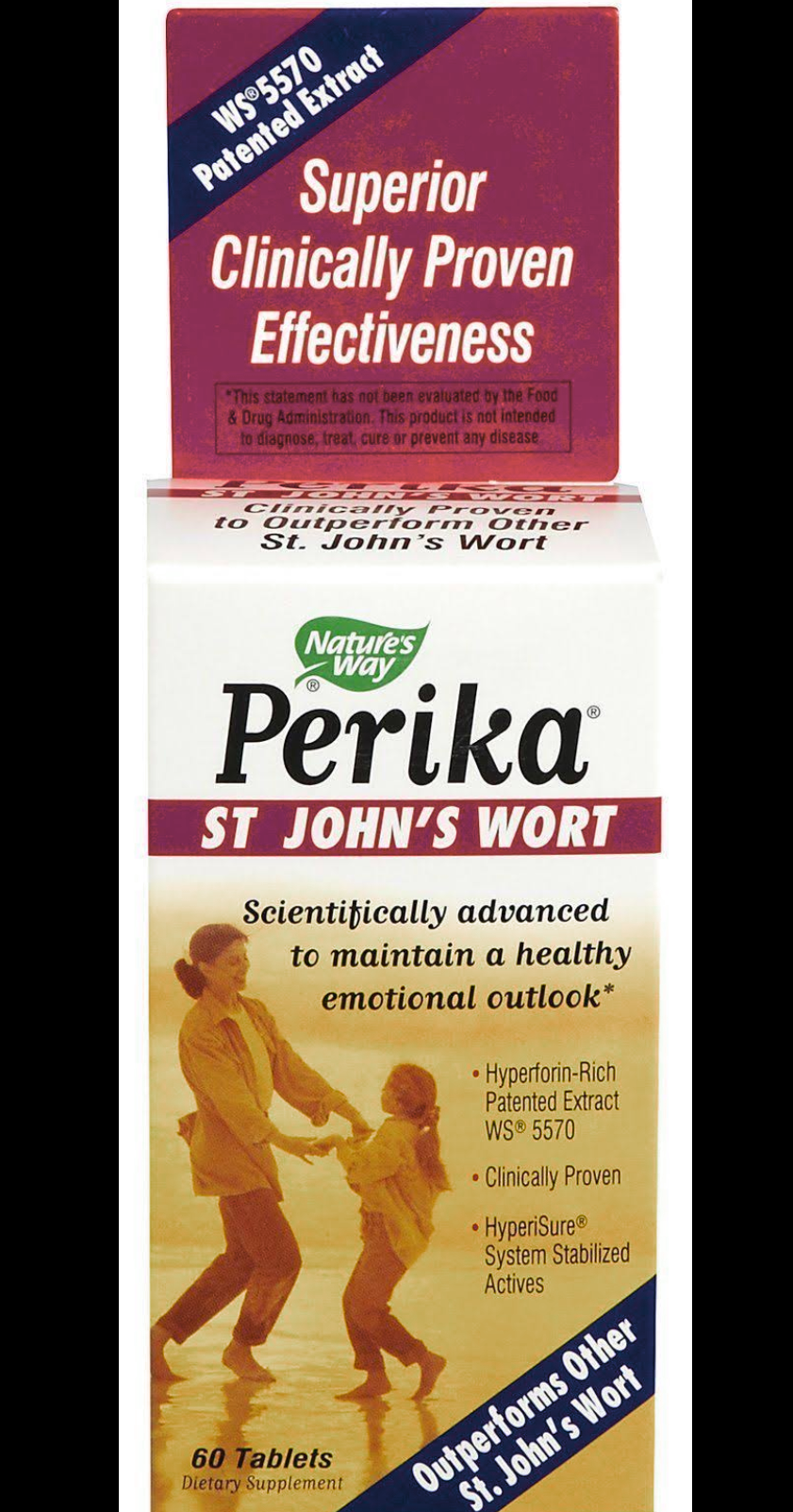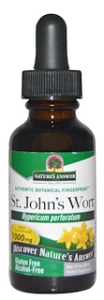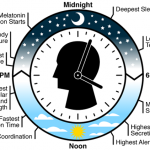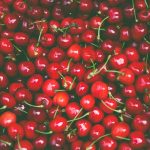But what the heck is St. John’s Wort?
Botanical names: Hypericum Perforatum (Western) and Herba Hypericum (Eastern).
Hypericum means “to set above the altar”, and Perforatum means that the leaves have many perforations.
The small perforations in the leaves of the St. John’s Wort shrubbery, is said to filter out negative psychic energy.
So you can dry this plant and use it to mark a holy area in your home for prayer, or you can carry it with you for protection.
More information in the video, down below⬇️⬇️⬇️:
St. John’s Wort is a flowering shrub that is native to many parts of Europe and the US.
This 5-pointed, yellow flowering plant— can be used to alleviate stress, insomnia, and anxiety.🟡🟡🟨🟨🟨🟡🟡⭐⭐
If you struggle with bouts of depression, then St. John’s Wort can help you, big time.
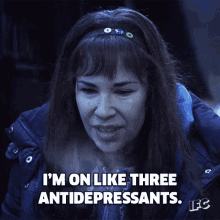
On top of all that good stuff…
It has been used as an antiviral, antibacterial tool, that can get rid of infections in or on your body.
St. John’s Wort even helps with weight loss, skin elasticity, and it can build your confidence by curing self esteem issues.
If your liver needs a detox, this herb can do that job for you too!
This perennial herb has been talked about and used all around the world, for centuries— in Chinese medicine, folklore, Shamanism, Western Science, and more.
This herb seems to be the best one you could take, to stay balanced all day, everyday.
More quick facts about St. John’s Wort from the White Rabbit Institute of Healing…
“It has been used to heal sword wounds as far back as the Middle Ages.
The Crusaders used the plants red oil to sooth and heal wounds.
Christians identify the herb with St John saying the plant’s red pigment is St. John’s blood from his beheading…
….When flower buds (not the flower themselves) or seeds are crushed a reddish/purple liquid is produced.
The whole plant gives off an incense-like aroma.
Indigenous to Europe, introduced to many temperate areas of the world, grows wild in meadows.
Thrives in areas with either a winter or summer dominate rainfall pattern and distribution restricted by temperatures that drop too low for seeds to germinate.
Seeds can persist for decades in the soil seed bank. In some areas even considered a noxious weed. Likes gravely soils.”—SOURCE (read their full description, by clicking this link).
List of St. John’s Wort Healing Properties in your body by the Nootropics Expert:

“Neurotransmitters— St. John’s wort inhibits the uptake of serotonin, dopamine, GABA, glutamate and norepinephrine.
Inhibiting the neuronal uptake of these neurotransmitters can have a profound effect on depression and mood.
Neuroprotection— St. John’s wort extract decreases oxidative stress, prevents neurotoxicity, and brain inflammation.
It helps maintain mitochondria electric potential in brain cells. And protects against cell death caused by amyloid P peptides that form plaques in the brains of those suffering from Alzheimer’s.
Anxiety and stress— St. John’s wort extract helps alleviate the symptoms of anxiety and stress by influencing neurotransmitters. And St. John’s wort moderates the genes controlling the function of your HPA-axis which is directly related to symptoms of anxiety and stress.”—SOURCE (read full description by clicking this link).
All that stuff sounds great… but how can St. John’s Wort help me with insomnia?
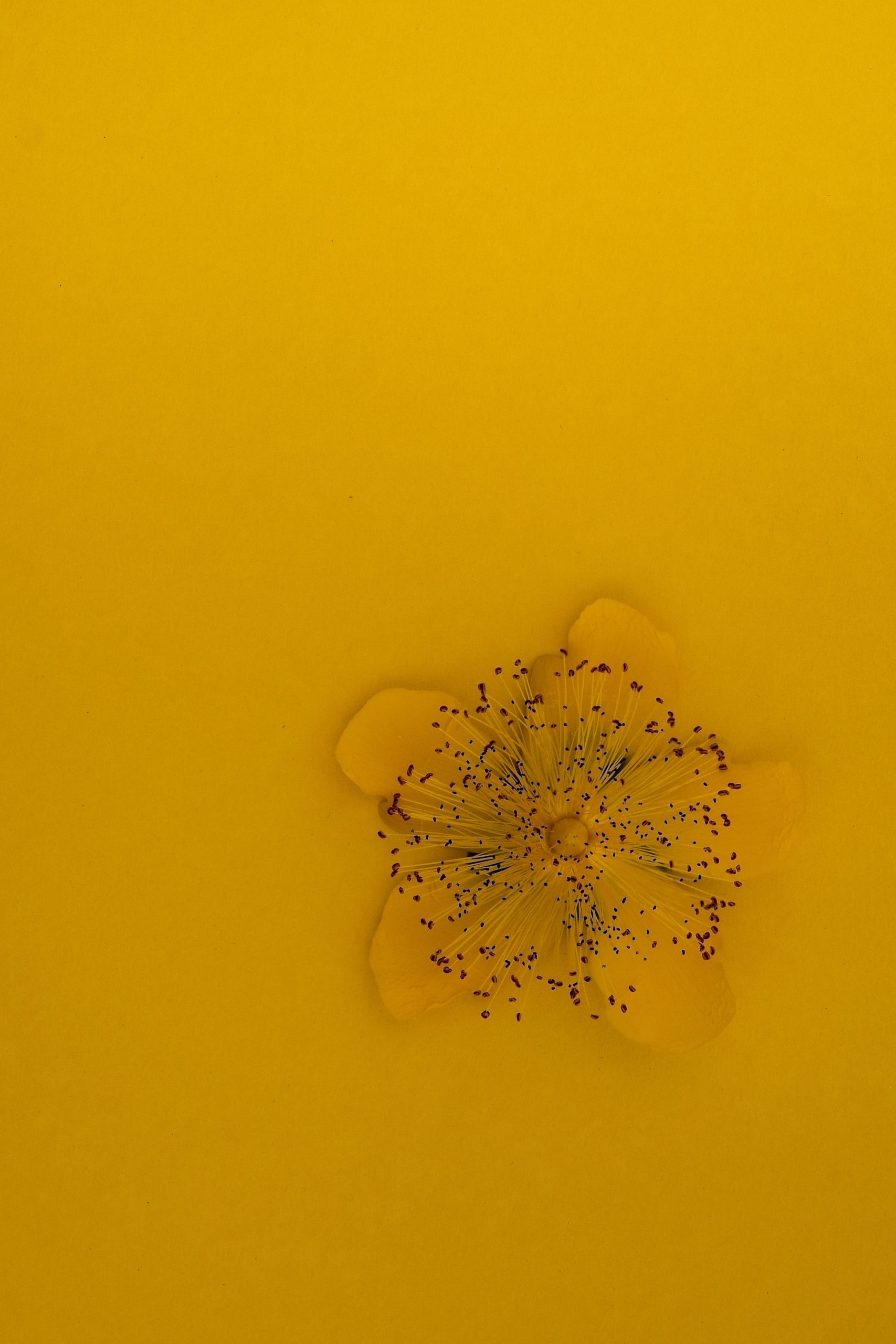
The active ingredient in St. John’s Wort, that acts as a natural antidepressant is Hyperforin.
If you’re familiar with St. John’s Wort, you might say, “well what about the other ingredient, called Hypercine?”…
Yes, Hypercine exists as an active ingredient in St. John’s Wort, but it doesn’t produce as much antidepressant qualities as Hyperforin does.
Hyperforin, is the most powerful, antidepressant constituent in St. John’s Wort.
It increases the production of serotonin, norephrenine, and dopamine in your brain.
These neurotransmitters control and regulate your body’s circadian rhythm.
Helping you to produce serotonin, dopamine, and norephrenine when you wake up.
And they increase the production of melatonin, once the sun goes down.

The more serotonin and positive neurotransmitters, your brain produces—the faster it can produce melatonin when it’s time for bed.
You will start to easily and naturally feel tired after having a good, uplifting day.
There is another way that St. John’s Wort can help you fall asleep faster and it’s because:
St. John’s Wort stimulates your GABA receptors.
GABA (gamma-Aminobutyric acid) receptors allow for sleep-inducing chemicals to move through the brain.
And it blocks stress chemicals from affecting you.🖐️
Once GABA production begins, your brain starts producing melatonin as well.
GABA uplifts your mood, while keeping you feeling levelheaded and calm.
While melatonin will gently sedate you for a deep sleep throughout the night.
How to consume it and where to buy it…
St. John’s Wort can be used in many different forms.
- The herb can be dried
- Used in a tea
- Made into a liquid extract
- Used as an topical oil or salve
- Turned into a powder and taken as a capsule
Which form of St. John’s Wort is right for me and my insomnia?

For Insomnia, you should take the tablet form of St. John’s Wort.
This will confirm that you’ve taken the highest and safest amount of St John’s Wort—that will put you to sleep.
St. John’s Wort recommended dosages and side effects:
You will want to make sure that you are purchasing a high quality St. John’s Wort product.
Researchers say that the benefits of St. John’s Wort are only applicable to standardized extracts—such as:
- WS 5570/2—(see down below for buying options)
- ZE 117— you can purchase this standardized extract of St John’s wort, by clicking this link.
Check the labels and look for:
- Perika® which is WS 5570 extract
Here is the Perika (WS 5570) Standardized St. John’s Wort Extract found sold on Amazon, iHerb, and several other online vitamin Shoppes.
If you decide to purchase any random St. John’s Wort products you could get photosensitivity and cataracts….
So make sure the St John’s Wort supplement you choose, is a Standardized Extract, preferably made by Kira or with the code ZE 117.
What time should I be taking my dose of St. John’s Wort for insomnia?

Since St. John’s Wort helps you to produce serotonin.
You should take up to 1,800 milligrams, half in the morning, and half in the afternoon.
But do not take St. John’s Wort immediately before bed or too late at night.
This can throw your internal clock out of wack, so make sure you only take the supplement during the day.
Your body will know when it’s time to start producing melatonin for sleep— when the sun goes down.
Recommended daily dosage:
900—1,800 milligrams per day.
If you’re interested in making St. John’s Wort into a liquid extract or a topical body oil.
You can watch the video down below that will show you how to do this all by yourself!⬇️
Here’s a full video from the Nootropics Expert giving you all the info you need on St. John’s Wort⬇️:
Here is a liquid extract of St. John’s Wort for you to check out:
Get The Top 10 “How To Sleep Better” Videos On Youtube … and be notified when important sleep related information is posted.Just enter your name and email in the boxes below to get the information you need, now. |
 |
